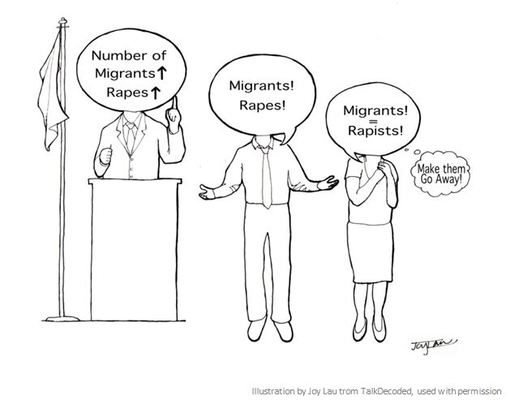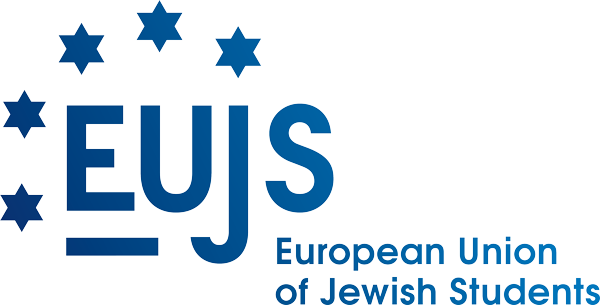How does the way we frame news intersect with the world of politics? To learn more, we talked to the team behind Talk Decoded, a blog about the power of language in politics: expert in media, politics, and communication Anna Szilagyi and cartoonist Joy Lau.
In Hungary’s Great Anti-Migrant Campaign, for instance, Szilagyi and Lau explore the 2016 Hungarian referendum on migrant relocation, looking at framing language such as “Brussels Bureaucrats” and “illegal immigrants.” We used this example as a way to get their perspective on the power and challenges of framing.
Global Voices: How do you define “frame” or “framing”?
Anna: I’m interested in the power of words in politics. I rely on a linguistic conceptualization of framing developed by George Lakoff. According to him, frames are mental structures that can be activated by words. If we hear a word, it will evoke a frame in our mind. As this is largely an automatic process, politicians and the media can influence us through framing effectively without us being aware of it.























